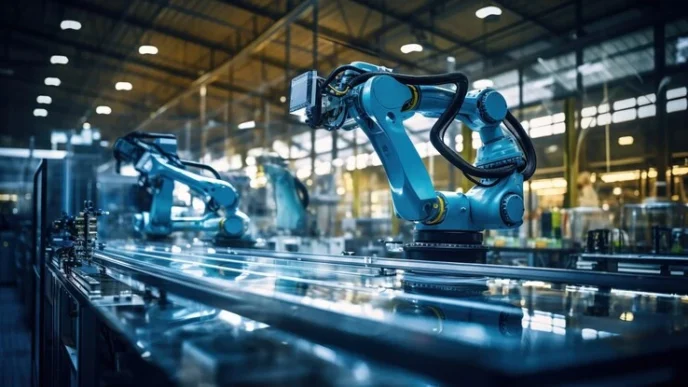Generative AI Accelerates Test Automation While Legacy Challenges and Sustainability Gaps Persist
The 2024 World Quality Report, released by OpenText in partnership with Capgemini and Sogeti, highlights a transformative shift in the field of Quality Engineering (QE). The 16th edition of this annual report, titled “New Futures in Focus,” presents a comprehensive analysis of current trends, revealing that 68% of organizations are now incorporating Generative AI (Gen AI) into their QE processes.
Key Findings at a Glance
• Generative AI Adoption: 68% of companies are actively using or planning to implement Gen AI in QE.
• Test Automation Enhancement: 72% report accelerated automation due to Gen AI integration.
• Upskilling Needs: While 82% have learning pathways for QE teams, only 50% monitor their effectiveness.
• Automation Barriers: 64% cite legacy systems as obstacles to automation; 57% lack comprehensive strategies.
• Sustainability Shortcomings: Only 25% measure IT development’s environmental impact; 34% implement sustainable QE practices.
Generative AI Revolutionizes Quality Engineering
The integration of Gen AI is reshaping the landscape of QE, moving beyond traditional testing of human-coded software to evaluating AI-generated code. The report indicates that:
• Active Utilization: 34% of organizations are currently using Gen AI in their QE processes.
• Implementation Roadmaps: Another 34% have developed plans to adopt Gen AI following successful pilot programs.
• Test Automation Leap: A significant 72% of respondents have experienced faster automation processes due to Gen AI.
Lisa Martinez, Head of Software Testing at a multinational tech firm, remarks:
“Generative AI is not just a tool; it’s a catalyst that’s accelerating our testing processes and improving code quality. We’re able to simulate scenarios and generate test cases that were previously time-consuming or overlooked.”
Upskilling: A Critical Imperative
Despite the technological advancements, the human element remains crucial. The report highlights a gap between the availability of learning programs and their effectiveness:
• Learning Pathways: 82% of organizations have dedicated upskilling initiatives for their QE teams.
• Effectiveness Tracking: Only 50% actively assess the impact of these programs.
• Key Skills in Demand:
• Gen AI Proficiency: Understanding and leveraging AI tools in QE.
• Agile Integration: Seamlessly incorporating QE into Agile development cycles.
• Cross-Functional Collaboration: Enhancing communication between development, operations, and QE teams.
Raj Patel, Senior QE Analyst at a financial services company, emphasizes:
“Continuous learning is essential. With the rapid adoption of Gen AI, our team needs not only technical skills but also the ability to adapt and collaborate across departments.”
Legacy Systems and Automation Challenges Persist
Automation is a cornerstone of modern QE, yet many organizations face significant hurdles:
• Reliance on Legacy Systems: 64% report that outdated systems impede their automation efforts.
• Lack of Strategy: 57% do not have a comprehensive test automation strategy in place.
• Impact on Efficiency: These challenges lead to slower testing cycles and increased time-to-market.
Emily Chen, Director of QE at a global retailer, notes:
“Our legacy infrastructure makes it difficult to implement advanced automation tools. We’re investing in modernization, but it’s a complex journey that requires careful planning and resources.”
Sustainability and Green IT: An Overlooked Priority
Sustainability in IT is gaining attention, yet the report uncovers a concerning lag in actionable measures:
• Environmental Impact Measurement:
• Only 25% of organizations assess the environmental impact of their IT development.
• 44% track the impact of their testing activities.
• Implementation of Sustainable Practices: Just 34% are adopting efficient QE practices to promote sustainability.
• Call to Action: The report urges companies to develop comprehensive Green IT strategies and integrate environmental considerations throughout the software development lifecycle.
Dr. Michael Green, Environmental Consultant in IT, warns:
“Ignoring sustainability in IT operations is a missed opportunity. Efficient QE practices not only reduce environmental impact but also enhance operational efficiency and corporate responsibility.”
Forecast: The Road Ahead for Quality Engineering
Increased Gen AI Integration
• Prediction: By 2025, it’s expected that over 80% of organizations will have Gen AI embedded in their QE processes.
• Impact:
• Enhanced Automation: Further acceleration of testing cycles.
• Improved Code Quality: AI-driven insights leading to more robust software.
Focus on Skill Development
• Prediction: Companies will invest more in tracking and improving the effectiveness of upskilling programs.
• Impact:
• Workforce Competency: Better-equipped teams to handle advanced QE challenges.
• Talent Retention: Organizations that prioritize learning may see lower turnover rates.
Modernization of Systems
• Prediction: A significant shift towards modern infrastructure to support automation.
• Impact:
• Efficiency Gains: Reduced time-to-market and increased flexibility.
• Competitive Advantage: Ability to adopt new technologies swiftly.
Emphasis on Sustainability
• Prediction: Sustainability metrics will become standard in QE and IT development.
• Impact:
• Regulatory Compliance: Preparedness for stricter environmental regulations.
• Brand Image: Enhanced reputation among eco-conscious consumers and partners.
Positive Outlook for the Industry and Public
For the Industry
• Innovation Acceleration: Gen AI enables rapid innovation, allowing companies to bring superior products to market faster.
• Cost Efficiency: Automation and efficient QE practices reduce operational costs in the long term.
• Market Leadership: Early adopters of advanced QE practices position themselves as industry leaders.
For the General Public
• Better Quality Software: Consumers benefit from more reliable and secure applications.
• Environmental Benefits: Sustainable IT practices contribute to reducing the carbon footprint.
• Enhanced User Experience: Faster updates and improvements lead to improved user satisfaction.
Sarah Thompson, a tech industry observer, concludes:
“The integration of Gen AI and a renewed focus on skills development are propelling the industry forward. As organizations overcome legacy challenges and embrace sustainability, both businesses and consumers stand to gain immensely.”
Conclusion
The 2024 World Quality Report paints a picture of an industry at a pivotal point. The rapid adoption of Generative AI is revolutionizing Quality Engineering, offering unprecedented opportunities for efficiency and innovation. However, to fully realize these benefits, organizations must address the persistent challenges of legacy systems, invest in meaningful upskilling, and prioritize sustainability.
By aligning technological advancements with strategic human resource development and environmental responsibility, the industry can achieve a harmonious balance that drives success and contributes positively to society.
About the World Quality Report 2024
The World Quality Report is an authoritative annual publication that examines trends, challenges, and future perspectives in Quality Engineering across various industries. The 16th edition is based on surveys of over 1,750 senior executives from 33 countries and 10 sectors, providing deep insights into the evolving landscape of software quality.
Join the Conversation
How is your organization adapting to the integration of Generative AI in Quality Engineering? What steps are you taking to address legacy system challenges and promote sustainability? Share your experiences and insights in the comments below.
This article is based on the findings of the 2024 World Quality Report by OpenText, Capgemini, and Sogeti. All statistics and quotes are derived from the report and industry experts.












